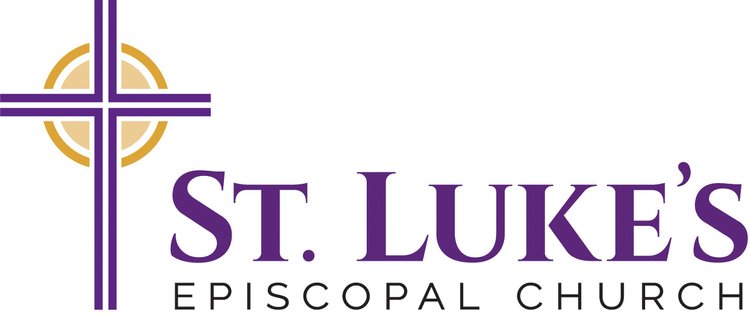About
Notes from our first two sessions
Sacred Ground Session 1: August 31 and Sept. 21, 2021
This is a second article in a series to provide an insight into what the participants in the first St. Luke’s Sacred Ground Circle learned over the past year of work. We will be providing one article a week through the summer to try to broadly capture the material that was presented. This will be supplemented by the personal statements of Circle participants describing what the experience meant to them and how they believe the Holy Spirit is calling them to respond.
The first session, which we split into two meetings, was mainly about building a sense of community with each other and introducing the major themes that the circle would take up in its work. We started with sharing what inspired each of us to join the program. Most offered some version of a recognition that racial issues still divided us in America in many ways and expressed a desire to learn more about the issues involved to be personally more effective in “overcoming this mess”. Several talked about past family involvement in the slave trade or current family experiences with what can still be a very segregated society. Some mentioned a heightened awareness of their own “Whiteness” after the recent events that gave birth to the “Black Lives Matter” movement or their self-realization of racial prejudices ingrained within them. There was a sense that, despite the progress our society has made over our lifetimes on civil rights issues, there now seemed to be increasing anger among some Whites with continued efforts to call out and address racism and racial injustice in our society. Circle members admitted they often find it very difficult and uncomfortable to engage in a real discussion about race in America and hoped that this program would provide better tools for them to do so.
We discussed the documentary “American Creed” from the Miller Center’s Democracy Initiative. Historian David Kennedy and former Secretary of State Condoleezza Rice moderated a group discussion of citizens drawn from across the spectrum of racial, social, class and political differences in America. While acknowledging the dangers of increased polarization in our society and a general loss of faith in our institutions and leaders, the documentary highlighted a strong sense that the American ideal is about service to others and that the Dream of America is still alive, despite racism and classism, wherever Americans can find ways to work together. We shared personal stories that built on the themes highlighted in the film.
We were introduced to the Episcopal Church’s Becoming Beloved Community initiative Becoming Beloved Community Where You Are, long-term commitment to racial justice, healing and reconciliation. The vision spelled out arises from the Great Commandment: “Beloved community is the community that loves as God intends: where truth is told and hierarchies of human value are dismantled, where each person and culture is protected and honored as an equally beloved part of the human family of God, and where we counter human selfishness – the true root of sin and racism – with the selfless love of Jesus.”
The readings for the session introduced us to a number of themes:
1) Black History is Everybody’s History - While some Whites are discomforted by Black history because it leaves them feeling indicted/accused and thus resentful, the truth is Black history simply exists and we need to make peace with it. While it may hurt to walk this ground, together we can go far.
2) Not Somewhere Else, But Here – Dismantling racism is more than people not treating each other fairly, with respect and without prejudice. A commitment to racial justice is both on behalf of the other and of oneself, so that both can fully claim God’s gift of life.
3) Healing our Broken Humanity – Reconciliation is an ongoing spiritual process involving forgiveness, repentance and justice that restores broken relationships and systems to reflect God’s original intention for all creation to flourish.
4) America’s Original Sin: Racism, White Privilege & the Bridge to a New America – Racism as a sin seeks to undermine the very creation of human beings as equally valued, loved and cared for in the eyes of God. The Great Commandment is an absolute repudiation of racism. Racial & cultural integration was an original mission of the first disciples of Christ. The Scriptures envisage the end time when all peoples of the world worship God together, reflecting the drive toward racial inclusion.
We learned that racism is multifaceted and that it is hard to have conversations about race, and to address White privilege, structural racism and racial inequities in an effective and collaborative manner without dealing with unconscious bias, microaggressions, historical myths and racialized emotions.
As a reminder, Sacred Ground, a film-based dialogue series on race and faith, is one tool that supports the Episcopal Church’s long-term commitment to racial healing, reconciliation and justice under the banner of Becoming Beloved Community. The race dialogue series is an attempt to be responsive to the profound challenges that currently exist in our society, focusing on the challenges that swirl around the issues of race and racism, as well as the difficult but respectful and transformative conversation about race. It invites participants to walk back through history to peel away the layers that brought us to today, and to do that in a personal way, reflecting on family histories and stories, as well as important narratives that shape the collective American story. It holds the vision of beloved community as a guiding star – where all people are honored and protected and nurtured and beloved children of God, where we weep at one another’s pain and seek one another’s flourishing.
